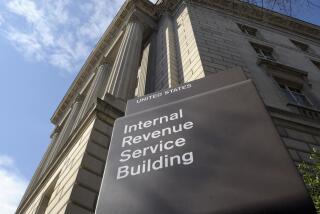Step-By-Step Tax Guide : Tax Facts : Final Thoughts
- Share via
It’s not too early to begin planning ways to reduce your 1993 taxes. A few sage moves today can be worth thousands of dollars next April.
What can you do?
* Start a tax file. The simplest--and often most effective--way to reduce your taxes is to get organized and start keeping close track of your deductible expenses. Your tax file can be as complicated as a divided file drawer, with separate folders for different types of expenses, or as simple as a large envelope. What’s important is that you have one centralized place to stash bank statements, receipts, medical bills and handwritten notes that help you remember deductible expenses.
* Contribute to a retirement plan. If your company offers a 401(k) plan at work, consider contributing the maximum amount. These contributions come out of your paycheck before taxes, and the IRS acts as if you never earned the money. As a result, 401(k) contributions lower your taxable income, give you the benefit of tax-deferred interest earnings and ensure you a more comfortable retirement--all at the same time.
* Consider a home equity loan. If you have personal debts, such as a car loan or credit-card debt, and you have built up equity in your home, you might consider consolidating your debts into a home equity loan. You can borrow up to $100,000 for any purpose and deduct the interest expense. Interest paid on other consumer debts is not deductible.
* Bunch deductible expenses. If you know you’ll have unusually high medical or business expenses, you may want to push other similar expenses into the same year to meet the “deduction floor.” For instance: You’re expecting a baby and know you’ll pay several thousand dollars in unreimbursed doctor and hospital costs. Consider speeding up voluntary medical expenses, such as check-ups and dental appointments, so you’ll have enough expenses to get a tax break.
More to Read
Inside the business of entertainment
The Wide Shot brings you news, analysis and insights on everything from streaming wars to production — and what it all means for the future.
You may occasionally receive promotional content from the Los Angeles Times.










